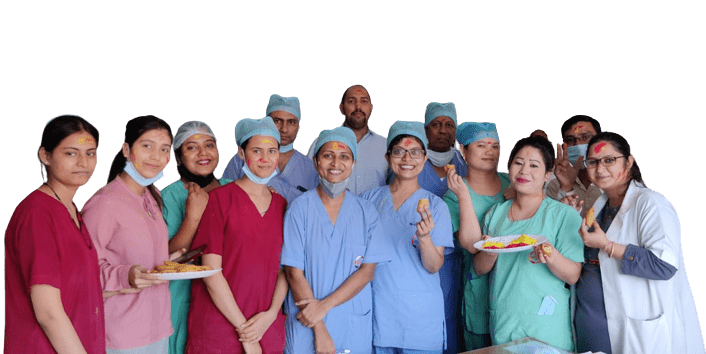Need Help?
We are here to help.
We care for each one who come to us with hope in their hearts.

Infertility means not getting pregnant after one year of testing (or six months if a woman is over 35). The Centers for Disease Control and Prevention (CDC) mentions that almost 10% of women (6.1 million) between the ages of 15 and 44 have a hard time conceiving or holding their baby in their womb. While infertility can have symptoms such as menopause or severe menstrual cramps, the reality is that many of the factors that lead to infertility are silent. Male infertility in fact rarely has any symptoms.
So, we reached out to Dr Kaberi Banerjee, IVF Specialist and Director Obstetrics and Gynecology Center, and asked her to express her views on the possible causes of pregnancy complications. Keep reading to find out everything she shares.
While to conceive, the sperm needs to meet the egg during ovulation. And not every day of the month is a fair game for that! If you have just started trying or you have not created an actual ovulation window yet, you may be trying to get pregnant at an inappropriate time of the month. Follow-up menstruation can help address this issue. About 80% of young couples get pregnant after 6 months of trying, and almost 90% after 12 months of trying to get pregnant.
The human mind needs eggs and sperm. Without an egg, you will not be able to conceive. Anovulation is a common occurrence of female infertility, and can be caused by several conditions. In this case, try talking to obstetricians about further tests and methods they can offer to help with the adjustment, and find out why ovulation does not occur.
Women can carry the baby, but it carries two to the tango. 40% – 50% of infertile couples find birth defects on the male side. It is true that men can produce sperm throughout their lives, and there is also the issue of sperm quality. The number, shape, and movement of sperm can affect fertility.
For women after the age of 35, and for men after the age of 40, it can take a long time to get pregnant. Some women assume that if they are still having a normal routine, their fertility is good, but this is not true. Age affects the quality of the eggs significantly.
If the tubes are blocked and damaged, one may find it difficult to conceive. Evaluation of tubes through Hysterosalpingography, sonosalpingography and Laparoscopy becomes essential.
The inner part of the uterus, endometrium , is critical for pregnancy. If one has a well developed thick endometrium in mid cycle then the chances of pregnancy are high. Infections may destroy the endometrium.
There are many medical issues that can affect fertility. Some common ones include PCOS and endometriosis. Fibroids, polyps, and other uterine conditions need evaluation. Endometrial health is the key to successful pregnancy and certain conditions such as tuberculosis can damage the endometrium. If you have a known health condition for birth defects, it is important to talk to your doctor as soon as possible. Thyroid dysfunction affects fertility and must be corrected. You should also see a pediatrician if you have a history of abortion or are aware of a genetic or other medical condition that may affect your fertility. Closure of the fallopian tube can lead to many more issues. If something prevents the fallopian tubes from working properly, or if the stain blocks the sperm or egg from fertilizing, you will not be able to get pregnant.
The reasons for infertility are not always obvious to the person who was born. So, if you are trying to get pregnant for a long time, please get help. Do not wait. Do not lose hope, too. Working with your service provider allows you to explore your options and decide which method is best for you.[/vc_column_text][/vc_column][/vc_row]
We care for each one who come to us with hope in their hearts.

Disclaimer – Dr Kaberi is not associated with any Hosptial/Clinic other than “Advanced Fertility and Gyne Center (AFGC)”. AFGC has only four centers at present 1. “Lajpat Nagar” 2. “CR Park Delhi” 3. “Noida” 4. “Gurgaon“.